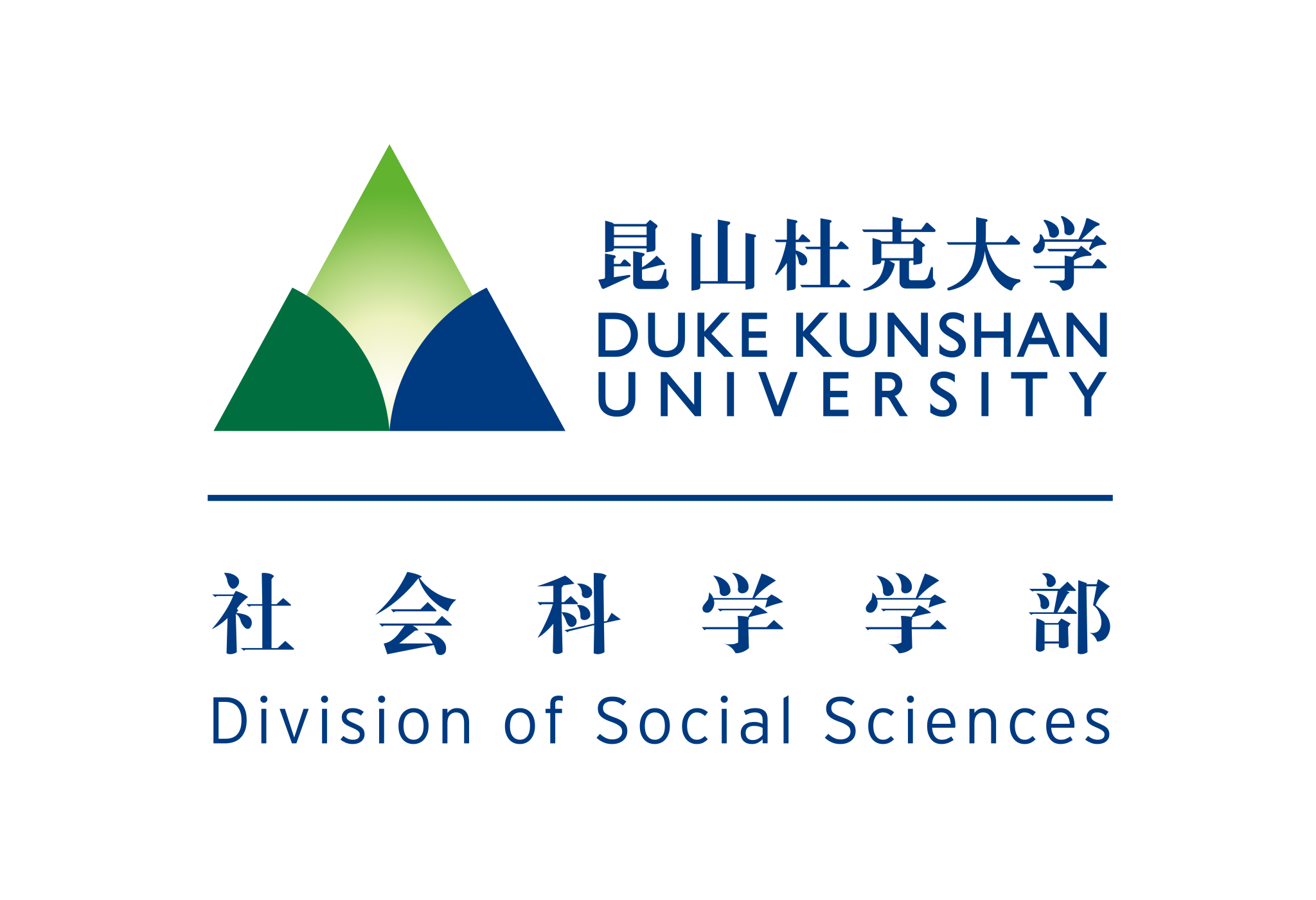Duke Kunshan University’s teaching philosophy focuses on students gaining a global and practical outlook on their studies while immersing themselves in the local community. It is through the efforts of Prof. Luyao Zhang, in collaboration with Prof. Mingchun Huang, and scholars from the Division of Arts and Humanities that such goals were achieved during a field trip titled “Innovation Odyssey: Journey to the West for Sustainability.”

On November 15th, students from four distinct courses came together in an interdisciplinary collaboration during a visit to Tsinghua Technology & Innovation Holdings Co., Ltd. at the Yunkun Building in Kunshan. This unique opportunity was the result of the combined efforts of Prof. Luyao Zhang, Assistant Professor of Economics in the Social Science Division and Senior Research Scientist at the Data Science Research Center; Prof. Mingchun Huang, Associate Professor of Data and Computation in the Division of Natural and Applied Sciences; and other scholars from the Division of Arts and Humanities.
The participating courses included INFOSCI 301: Data Visualization and Information Aesthetics and STATS 201: Introduction to Machine Learning for Social Science, both led by Prof. Luyao Zhang; MEDIART 306: Integrative Game Design, taught by scholars from AH; and COMSCI 207: Image Data Science, instructed by Prof. Mingchun Huang. This collaborative environment reflected the interdisciplinary nature of Duke Kunshan University’s teaching philosophy, fostering connections across diverse fields. The experience was also made possible thanks to Yongyu Zhu from the Office of Student Experience, who provided support in planning the trip and arranging transportation. Dongsheng Cheng, a graduate research fellow under Prof. Mingchun Huang, also volunteered to assist with accompanying the group and handling documentation during the trip.
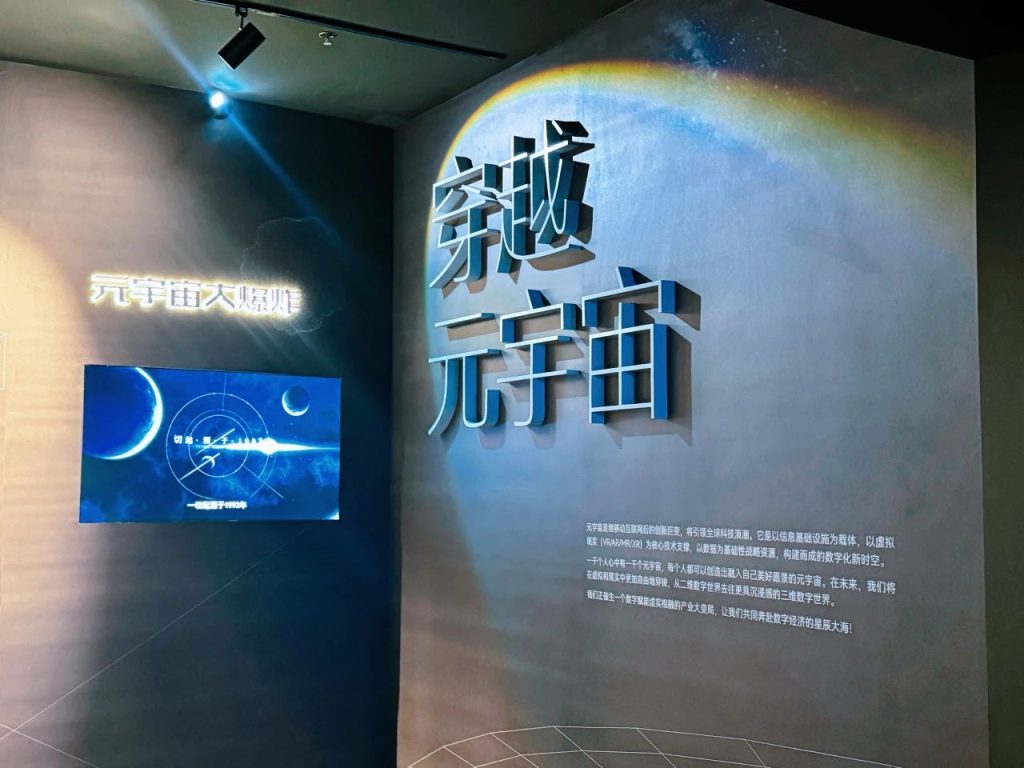
Tsinghua Technology & Innovation Holdings Co., Ltd. (TIIH) is a prominent platform bridging Tsinghua University with societal resources to foster industrial innovation. With nearly 20 years of experience, TIIH specializes in developing science parks, industrial zones, and innovation spaces, supporting over 13,000 enterprises globally and managing a portfolio that includes startups and high-tech firms. They focus on integrating technological innovation with sustainability through services like industrial planning, policy consulting, and technology transfer.
The purpose of the field trip was to provide students with a hands-on learning experience which integrates the themes of research and community-based learning in the context of local industrial parks in Kunshan and Suzhou. This purpose was more than achieved!
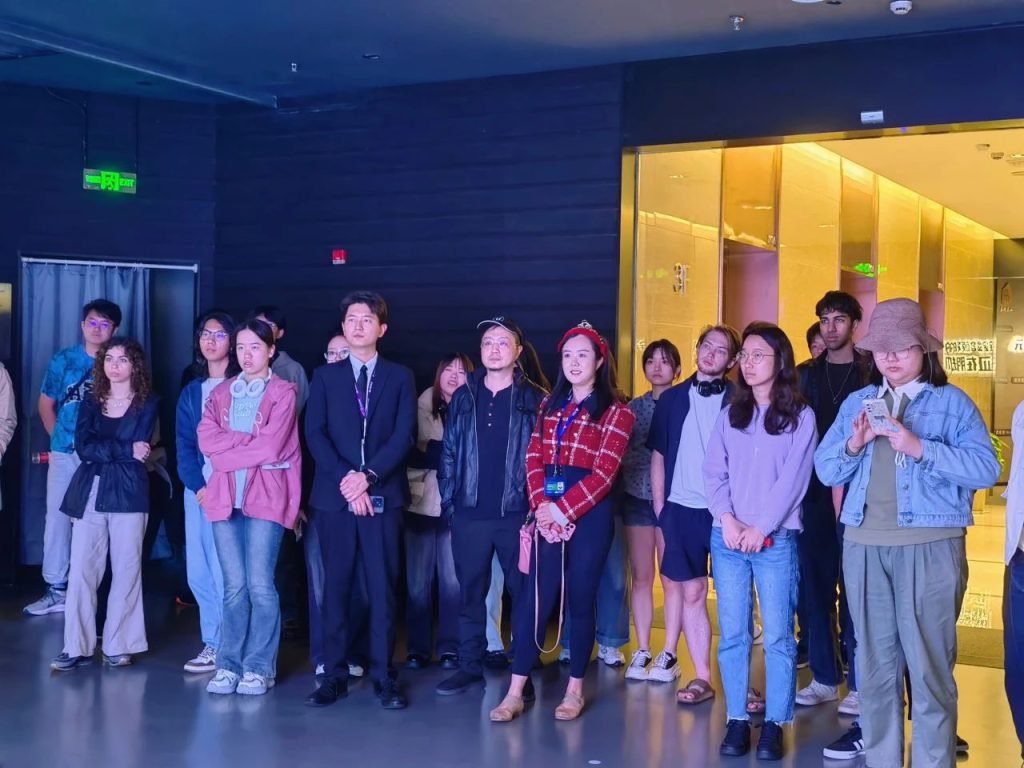
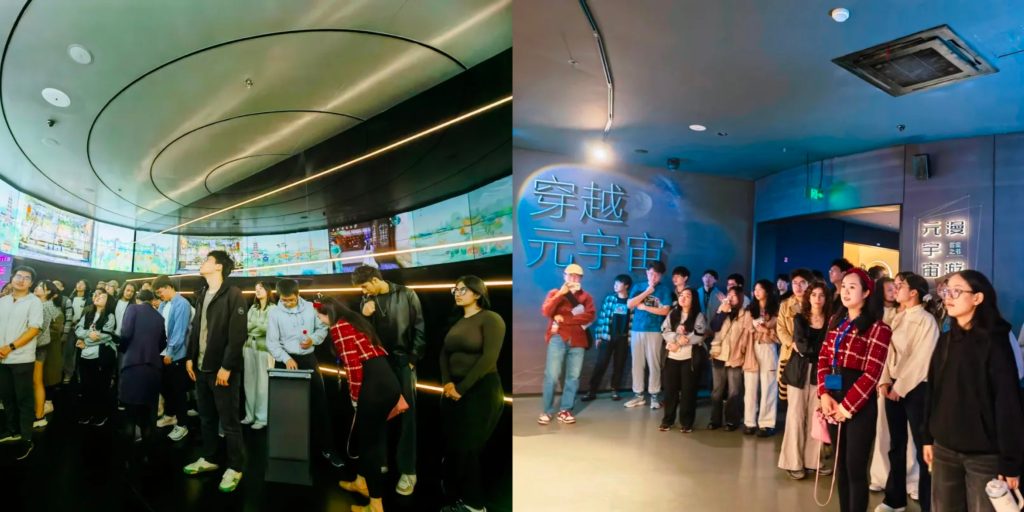
In the first part of the activity, students attended Kunshan’s Industrial Metaverse Infrastructure Exhibition. They used their knowledge to bridge the gap between the technology and design aspects of the project by engaging with them on a deep intellectual level. A key part of the exhibition was the transformative benefits of the metaverse for industries and commerce. It showcased the integration of data science, artificial intelligence, and sustainability for smart cities. Indeed, participants gained insights into how machine learning is applied to solve large-scale social science problems, such as reducing waste and improving energy efficiency.
The learning process was facilitated through the innovative technology at hand. For instance, Kunshan’s Digital Twin Smart City platform uses AI-driven data analysis, 3D visualization, and geographic information systems (GIS) to create a dynamic, digital replica of the city. This enables effective decision-making for urban policy evaluation, safety monitoring, risk forecasting, and emergency response. Furthermore, by using Building Information Modeling (BIM) and City Information Models (CIM) students could virtually interact with real-life challenges.

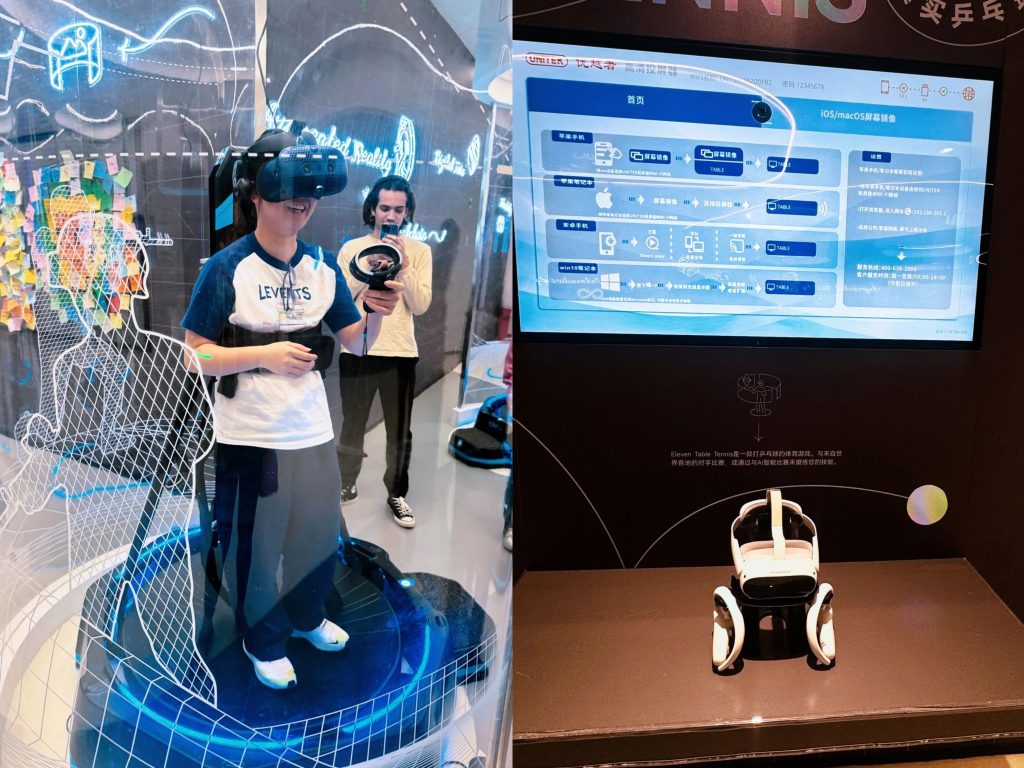
Another focus of the exhibition was the topic of transportation, likewise, discussed through the use of adept technology: Digital Twin Roads, vehicle driving simulation, and real-time data exchange enabled by industrial internet, wireless communication, and AI-powered traffic management. Students learned how instrumental this technology is in improving traffic flow and safety and supporting sustainable mobility solutions. The Smart Emergency Response Systems were the last, but certainly not the least. They use big data, IoT, and real-time tracking to ensure public safety and resilience during crises.
In the second part of the field trip, participants visited TIIH and exchanged ideas with their representatives. TIIH demonstrated its efforts to foster innovation ecosystems that combine AI, data science, and sustainability. Their expertise in developing smart cities and industrial metaverse technologies underscores their ability to empower businesses and cities with cutting-edge solutions for environmental and economic challenges.
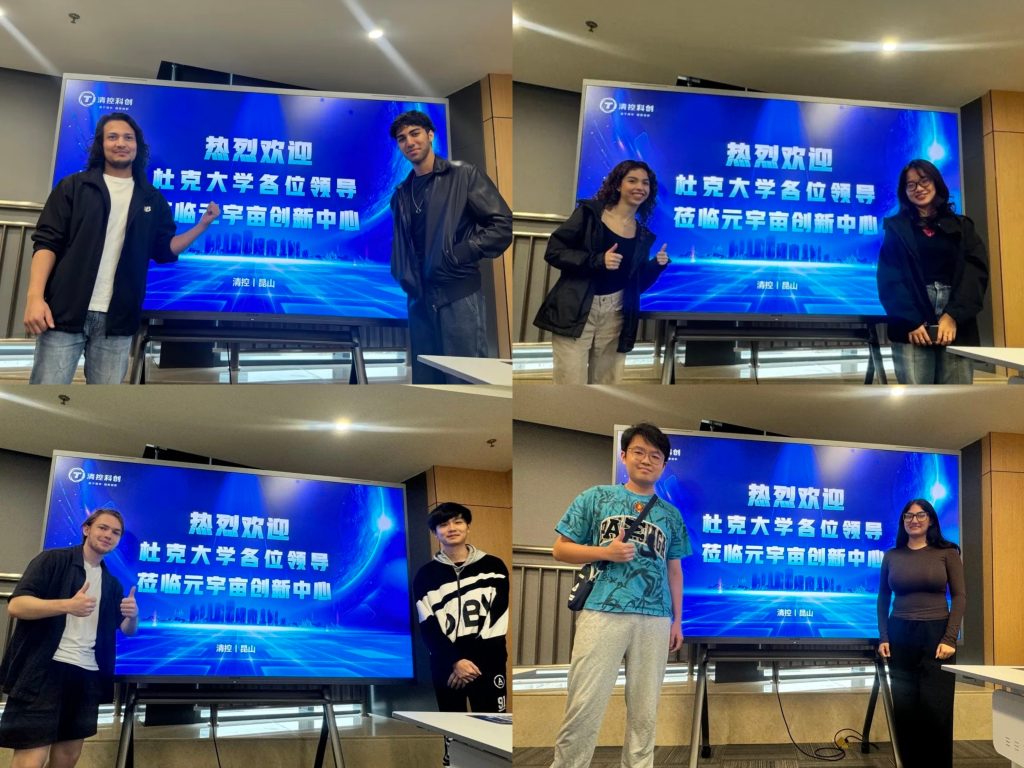
This interdisciplinary collaboration connected students and professors from diverse cultural roots and academic backgrounds, exemplifying Duke Kunshan University’s global vision. Students not only developed leadership skills by exploring intellectual frontiers but also built valuable networks with professionals and entrepreneurs in the AI and tech industries, contributing to real-world impacts.
The “Innovation Odyssey: Journey to the West for Sustainability” field trip highlighted the intersection of innovation and sustainability to benefit communities worldwide. Thanks to the joint efforts of Prof. Luyao Zhang, Prof. Mingchun Huang, other scholars, Yongyu Zhu, Dongsheng Cheng, and the Office of Student Experience, students were inspired to think entrepreneurially, broaden global perspectives, and prepare for leadership roles in a rapidly evolving world.
Written by: Eric Eberly
